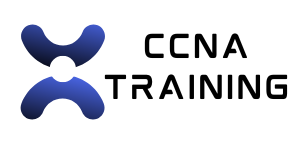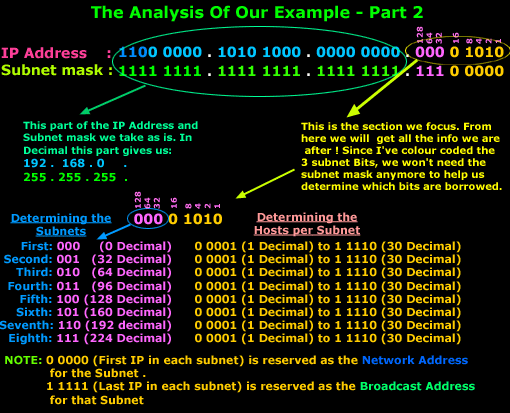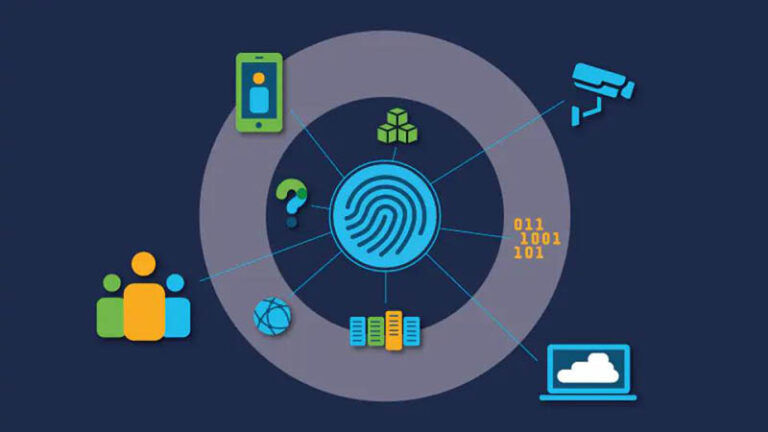In the field of information technology, Cisco certifications are highly respected and acknowledged worldwide. These certificates attest to the IT specialists’ proficiency with a range of Cisco products and services. Within the IT industry, the certification program covers a wide range of specializations and career paths with options ranging from entry-level to expert-level qualifications.
Key Takeaways
- Cisco certifications are highly valued in the IT industry and can open up numerous career opportunities for professionals.
- Obtaining Cisco certifications can lead to increased job security, higher salaries, and greater job satisfaction.
- There are various types of Cisco certifications available, including entry-level, associate, professional, and expert level certifications.
- To prepare for Cisco certification exams, candidates can take advantage of study materials, practice exams, and training courses offered by Cisco and other authorized providers.
- Continuing education and recertification are important for maintaining Cisco certifications and staying up-to-date with the latest technologies and industry trends.
Network engineers, security experts, and collaboration specialists are just a few of the roles that can benefit from Cisco certifications, which offer chances for career progression & proof of competence in Cisco technologies. Candidates must pass one or more exams assessing their knowledge & proficiency in particular networking and IT domains in order to become certified by Cisco. The purpose of these tests is to evaluate a candidate’s aptitude for designing, implementing, and debugging Cisco networks & solutions.
Cisco certifications are useful tools that can improve earning potential and career prospects in addition to attesting to technical proficiency. IT workers need to ensure that their knowledge and skills are up to date because of the speed at which technology is developing. Cisco certifications provide a disciplined framework for continuing education and career advancement in the industry.
Increased Employability. You become a more desirable asset to potential employers as it validates your knowledge and skill with Cisco technologies. Since industry-recognized certifications attest to a candidate’s competence & commitment to the field, employers frequently search for candidates who possess them. A higher potential for earnings.
| Cisco Certification Level | Description | Average Salary |
|---|---|---|
| Entry Level | CCENT (Cisco Certified Entry Networking Technician) | 50,000 |
| Associate Level | CCNA (Cisco Certified Network Associate) | 70,000 |
| Professional Level | CCNP (Cisco Certified Network Professional) | 95,000 |
| Expert Level | CCIE (Cisco Certified Internetwork Expert) | 120,000 |
A higher earning potential can result from obtaining a Cisco certification. IT workers with Cisco certifications make a lot more money than their non-certified peers, according to a Global Knowledge survey. Fresh Professional Prospects & Individual Development. Earning a Cisco certification may lead to new job prospects. Candidates with Cisco certifications are highly sought after by many companies for positions like network engineer, network administrator, security analyst, and more. There is an increasing need for qualified individuals with Cisco certifications due to the quick expansion of networking and IT infrastructure.
And finally, getting a Cisco certification can make you feel good about yourself. Achieving certification can increase your confidence & credibility in the industry, but passing the demanding exams takes commitment, perseverance, and hard work. Cisco provides a wide range of certifications to suit various career paths and skill levels. The five certification levels are Entry, Associate, Professional, Expert, & Architect. An IT professional’s career can be divided into several stages, ranging from entry-level technicians to seasoned network architects.
Different tracks or specializations that concentrate on particular aspects of technology, like data centers, security, collaboration, routing & switching, & more, are available within each level. An entry-level certification that verifies the abilities needed for network support positions at the entry level is the Cisco Certified Entry Networking Technician (CCENT), one of the most well-liked Cisco credentials. A widely recognized certification that covers a wide range of networking topics and is appropriate for network engineers and administrators is the Cisco Certified Network Associate (CCNA). The highest certification level that Cisco offers to professionals with more experience is the Cisco Certified Internetwork Expert (CCIE), which is well-known in the field. Dedication, time, & effort are needed to prepare for Cisco certification exams.
You can study and prepare for the exams using a variety of resources, such as official Cisco training courses, study guides, practice exams, and practical lab exercises. It is crucial to have real-world experience utilizing Cisco technologies and to fully comprehend the exam’s objectives and topics as stated by Cisco. Enrolling in a training program provided by Cisco Learning Partners is one of the best strategies to get ready for the Cisco certification exams. In addition to offering comprehensive coverage of the exam subjects, these courses frequently incorporate practical lab exercises to help students retain what they have learned.
You can also determine areas where you need to concentrate your study efforts and evaluate your preparedness for the test by using practice exams. Also essential to passing the Cisco certification exams is practical experience. You can apply theoretical knowledge to practical situations and gain valuable insight into real-world scenarios by setting up a home lab or getting hands-on experience in a work setting. Last but not least, making a study plan & blocking out time specifically for exam prep will assist you in maintaining organization and focus. You can greatly improve your career prospects in the IT industry by obtaining Cisco certifications. Possessing a Cisco certification can help you stand out from the competition in light of the growing need for qualified workers in networking, security, collaboration, and related fields.
Seeking candidates with Cisco certifications in particular for network engineer, network administrator, security analyst, and other roles is a common practice among organizations. Cisco certifications can lead to specialized jobs like data center specialist, wireless network engineer, and voice engineer in addition to traditional IT roles. Cisco certifications are a great tool for career advancement because these positions frequently call for specialized knowledge of Cisco technologies and solutions.
Moreover, obtaining a Cisco certification may increase one’s earning potential. The Global Knowledge survey states that the salary difference between IT professionals who hold Cisco certifications and those who do not is quite substantial. Keeping up with Certification Updates. To guarantee that they have the most recent information and abilities, Cisco requires certified professionals to recertify every few years. Recertifying yourself can be done in one of two ways: either by passing a specific exam or by accumulating continuing education credits by taking part in industry events, training sessions, or blog posts or conference presentations that benefit the IT community. The advantages of lifelong learning.
In addition to helping certified professionals remain current in their field, continuing education shows a dedication to lifelong learning and professional advancement. It’s a chance to learn new things, keep up with industry developments, & hone skills that are vital for success in the dynamic IT field. Retaining Certification Has Benefits. IT professionals can maintain their access to career advancement opportunities & increased earning potential by maintaining the validity of their Cisco certifications. To sum up, there are many advantages for IT professionals who hold Cisco certifications, and they are highly valued in the industry.
A Cisco certification can significantly impact your career by validating your knowledge and skill in Cisco technologies, providing access to new career opportunities, & increasing your earning potential. Every IT professional wishing to progress their career in networking, security, collaboration, data centers, and other areas can find a certification that suits them thanks to the variety of options available, each tailored to a different career path & level of expertise. Cisco certification exam preparation is time-consuming and labor-intensive, but it is doable with the correct tools & study techniques.
Maintaining Cisco certifications & remaining up to date with the newest technological developments require continuing education. IT workers may contribute to the constantly changing field of networking and IT infrastructure & advance in their careers by maintaining current certifications. All things considered, Cisco certifications are highly valued in the business and are an invaluable tool for any IT worker hoping to progress their career and prove their proficiency with Cisco technologies.
If you are interested in learning more about Cisco certifications, you may want to check out this article on “A Guide to First Hop Redundancy Protocol” from CCNA Training. This article provides valuable information on how to implement first hop redundancy protocols in a network environment, which is a key topic covered in Cisco’s certification exams. You can read the full article here.
FAQs
What are Cisco certifications?
Cisco certifications are a range of IT certifications offered by Cisco Systems, a leading networking and telecommunications company. These certifications validate the skills and expertise of IT professionals in various Cisco technologies and products.
What are the different levels of Cisco certifications?
Cisco certifications are divided into five levels: Entry, Associate, Professional, Expert, and Architect. Each level represents a different stage of expertise and experience in Cisco technologies.
What are the different tracks for Cisco certifications?
Cisco certifications are available in various tracks, including Routing and Switching, Security, Collaboration, Data Center, Service Provider, CyberOps, DevNet, and more. Each track focuses on specific Cisco technologies and products.
What are the benefits of earning Cisco certifications?
Earning Cisco certifications can lead to career advancement, increased job opportunities, higher salaries, and enhanced credibility in the IT industry. Cisco certifications also provide access to exclusive Cisco resources and communities.
How can I prepare for Cisco certification exams?
You can prepare for Cisco certification exams by taking official Cisco training courses, using Cisco study materials and practice exams, and gaining hands-on experience with Cisco technologies. Additionally, joining study groups and seeking mentorship from experienced professionals can be beneficial.
Are there any prerequisites for earning Cisco certifications?
Some Cisco certifications have prerequisites, such as having certain foundational certifications or a certain level of experience in the industry. It’s important to review the specific requirements for each certification before pursuing it.
How long are Cisco certifications valid for?
Most Cisco certifications are valid for three years. To maintain your certification, you can either retake the exam, earn continuing education credits, or advance to a higher-level certification within the three-year period.















